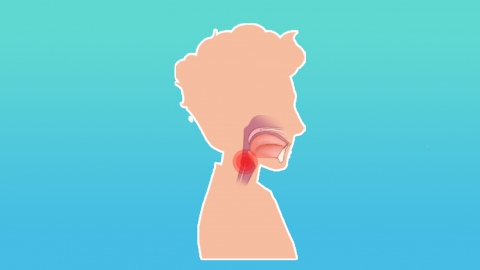How to relieve sore throat with breathing pain
Generally, sore throat during breathing may be caused by factors such as dry throat, local irritation, colds, tonsillitis, pharyngitis, and other medical conditions. Symptoms can be relieved through daily self-care or medication. It is recommended to seek timely medical attention and receive treatment under the guidance of a healthcare professional. Specific analysis is as follows:

1. Dry throat: Prolonged talking or inhaling irritating gases may lead to a dry throat. In such cases, individuals often experience throat pain or a prickling sensation. Drinking more water can help relieve symptoms.
2. Local irritation: Inhaling excessive dust, smoke, chemical fumes, or other irritants during breathing may also cause throat discomfort. It is advisable to avoid these adverse environments and alleviate symptoms by drinking more water and breathing fresh air.
3. Cold: A cold is a respiratory illness caused by viral infection, with common symptoms including sore throat, flu-like symptoms, sneezing, and coughing. Sore throat is often one of the early signs of a cold. Treatment may include antiviral oral solutions, Ganmaoling granules, ibuprofen tablets, or other medications as advised by a doctor.
4. Tonsillitis: Tonsillitis is an inflammation of the tonsil tissue, usually caused by bacterial or viral infections. Common symptoms include sore throat, discomfort in the throat, and fever. Relief may be achieved with medications such as compound Honeysuckle granules, amoxicillin capsules, or penicillin V potassium tablets, based on a doctor's recommendations.
5. Pharyngitis: Pharyngitis refers to inflammation of the pharyngeal tissues, with common symptoms including sore throat, coughing, and difficulty swallowing. It is typically caused by viral or bacterial infections, but may also result from allergic reactions or exposure to irritants. It is recommended to follow medical advice and use antibiotics such as roxithromycin capsules, erythromycin tablets, or azithromycin capsules to reduce inflammation.
In daily life, it is also important to get adequate rest, maintain a light diet, avoid overusing the voice, and eat mild, non-irritating foods to promote recovery.









